Fundamental and recent progress of Atomic Force Microscopy - March 19, 2020 (Chinese/中文)
March 19, 2020 11:00-12:00 (CST) Beijing
*Note: This webinar will be presented in Mandarin /中文
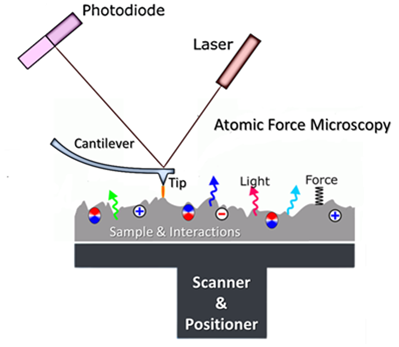
Nanoscience and technology is one of the most potential research fields in the current fundamental sciences and high-tech. The nanoscale characterization and measurement techniques, including Electron Microscopy, Scanning Probe Microscopy (SPM) and Super-Resolution Optical Microscopy, play key roles in the developing progress of Nano-S&T. Until now, a series of SPM techniques, especially Scanning Tunneling Microscopy (STM) and Atomic Force Microscopy (AFM), have become the core research tools for the materials’ structure, properties and functions at the micro- and nano-scale. As the most extensive SPM techniques, AFM can also be in corporate with the other spectroscopy techniques to realize their nanoscale characterization capabilities in real-space.
In this three-time talk, (1) the fundamental of SPM will be brief introduced firstly, then the basic theory, instrumentation and methods of AFM will be discussed detailed; (2) the three common AFM working modes and their specific applications; (3) the functional AFM modes and their basic principles and applications in the research of materials’ properties at the micro- and nanoscale. A brief comment on the further development of AFM probe techniques and their expanding application areas are also supplied.
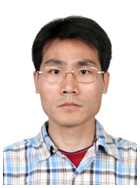
Speaker:
Prof. Zhihai Cheng
Zhihai Cheng is a professor of Department of Physics, Renmin University of China (RUC). He received his Ph.D degree in Institute of physics, Chinese Academy of Sciences. Before joined RUC, he was a professor of National Center for Nanoscience and Technology (NCNST). His chief research interest is the advanced scanning probe microscopies and their applications in nanoscience and technology. He has published more than 60 peer-reviewed journal articles and some of them had been highlighted in many well-known scientific medias.
Fundamental and recent progress of Atomic Force Microscopy - March 26, 2020 (Chinese/中文)
March 26, 2020 11:00-12:00 (CST) Beijing
*Note: This webinar will be presented in Mandarin /中文

Nanoscience and technology is one of the most potential research fields in the current fundamental sciences and high-tech. The nanoscale characterization and measurement techniques, including Electron Microscopy, Scanning Probe Microscopy (SPM) and Super-Resolution Optical Microscopy, play key roles in the developing progress of Nano-S&T. Until now, a series of SPM techniques, especially Scanning Tunneling Microscopy (STM) and Atomic Force Microscopy (AFM), have become the core research tools for the materials’ structure, properties and functions at the micro- and nano-scale. As the most extensive SPM techniques, AFM can also be in corporate with the other spectroscopy techniques to realize their nanoscale characterization capabilities in real-space.
In this three-time talk, (1) the fundamental of SPM will be brief introduced firstly, then the basic theory, instrumentation and methods of AFM will be discussed detailed; (2) the three common AFM working modes and their specific applications; (3) the functional AFM modes and their basic principles and applications in the research of materials’ properties at the micro- and nanoscale. A brief comment on the further development of AFM probe techniques and their expanding application areas are also supplied.

Speaker:
Prof. Zhihai Cheng
Zhihai Cheng is a professor of Department of Physics, Renmin University of China (RUC). He received his Ph.D degree in Institute of physics, Chinese Academy of Sciences. Before joined RUC, he was a professor of National Center for Nanoscience and Technology (NCNST). His chief research interest is the advanced scanning probe microscopies and their applications in nanoscience and technology. He has published more than 60 peer-reviewed journal articles and some of them had been highlighted in many well-known scientific medias.
Graphene-coated nanoprobe — New approach to obtain conductive probes with enhanced reliability and lifetime December 19, 2019(Chinese/中文)
Thursday, December 19, 2019
15:00-16:00 (CST) Beijing
*Note: This webinar will be presented in Mandarin /中文
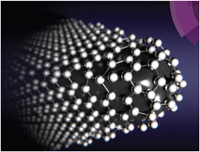
Graphene-coated nanoprobe
Nanoprobes are highly required in many fields of science, including physics, mechanics, microelectronics, nanotechnology, medicine and biology, as they allow fabrication and characterization with high spatial resolution. But, unfortunately, most nanoprobes available in the market lose their initial good performance extremely fast after some scans or spectroscopic measurements, especially during electrical or mechanical experiments. This webinar will introduce the use of high-quality solution-processed (and spray-coating) graphene sheets to enhance the performance of ultra-sharp nanoprobes. The results prove that graphene-coated nanoprobes not only ensure obtaining high-resolution images, but also enhance the reliability and lifetime. The simplicity and low cost of this method, which can be used to coat any kind of sharp tip, make it suitable for the industry, allowing production on demand. Moreover, the selection of conductive probes referring to the experimental requirements will also be introduced.
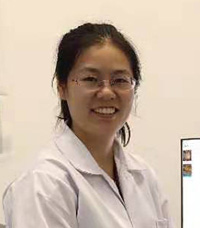
Speaker:
Fei Hui Ph.D
Fei Hui, Postdoctoral fellow at Technion-Israel Institute of Technology, Dr. Hui got her PhD degree in Nanoscience in 2018 at the University of Barcelona. During her PhD, she studied at Massachusetts Institute of Technology (MIT, USA) for 12 months and the University of Cambridge (UK) for 6 months. She has published over 38 research papers, 11 of them are as first author, including Nature Electronics, Advanced Functional Materials, ACS Applied Materials and Interfaces, 2D materials, Nanoscale. Moreover, Dr. Hui edited one book chapter on CAFM for Wiley-VCH, and applied for two international patents. She has been awarded 2019 Park AFM Scholarship, Mobility Grant of Royal Society of Chemistry. Her research interests focus on chemical vapor deposition of high-quality two-dimensional materials and the application in nanoelectronics
Use of AFM for polymer characterization - January 24, 2020 (Spanish/español)
Viernes, Enero 24, 2020
*Note: This webinar will be presented in Spanish/español
- 11 am – 11:30 am
(CDT)
Cd. de Mexico, MX - 1:00 pm – 1:30 pm
(UTC-3)
Buenos Aires, AR - 1:00 –1:30 pm
(UTC-3)
S. Paulo, BR - 10–10:30 am
(CST)
San Jose, CR

Encontrar nuevos materiales con características innovadoras a nanoescala ha ayudado a guiar el desarrollo de muchas industrias en la era moderna. Dichos materiales han estado detrás de los avances en sectores como la energía, el transporte y las ciencias de la vida.
Para investigar y caracterizar nanomateriales innovadores, los científicos eligen Park AFM. Nuestro conocimiento técnico y profundo conocimiento de diversas aplicaciones ayuda a los investigadores a encontrar una manera de examinar sus muestras con una precisión y productividad inigualables.
Es posible caracterizar las propiedades eléctricas, magnéticas, mecánicas y morfológicas de los materiales con los modos de operación dedicados disponibles con Park AFM. Conozca en este webinar sobre caracterización de polímeros con AFM.
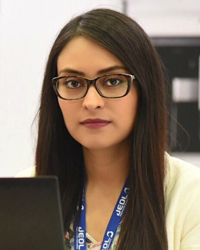
Presented By :
Gabriela Mendoza, Especialista en Aplicaciones, Park Systems
Gabriela Mendoza es científica de aplicaciones en Park Systems. Desarrolló un biosensor con AFM para detectar bacterias probióticas para su tesis doctoral. De 2015 a 2018 trabajó como profesora a tiempo completo en la Universidad Autónoma del Estado de Morelos (UAEM). Hasta la fecha tiene nueve publicaciones científicas en revistas y editoriales internacionales. Gabriela tiene un Postdoctorado en Ciencia de los Materiales, una Maestría en Ciencias en Bioprocesos y una licenciatura en ingeniería en Ciencias de los Alimentos.
Principle of operation and applications of electrical modes in AFM - December 13, 2019 (Spanish/español)
Viernes, Diciembre 13, 2019
*Note: This webinar will be presented in Spanish/español
- 11 am – 11:30 am
(CDT)
Cd. de Mexico, MX - 1:00 pm – 1:30 pm
(UTC-3)
Buenos Aires, AR - 1:00 –1:30 pm
(UTC-3)
S. Paulo, BR - 10–10:30 am
(CST)
San Jose, CR
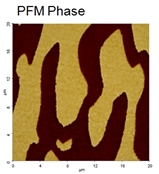
Detectores Piroeléctricos DLaTGS
Para muchos, la industria electrónica ha sido la piedra angular para lograr la prosperidad de la era moderna. La electrónica ha transformado por completo casi todas las facetas de la vida cotidiana, alimentando una demanda social y económica casi insaciable para mejorar continuamente nuestros dispositivos. Una de las principales formas de hacerlo es que las compañías de dispositivos produzcan dispositivos portátiles más rápidos, más pequeños, más baratos y más eficientes. Sin embargo, las dimensiones críticas de estos productos deben diseñarse por orden de nanómetros. La caracterización de las propiedades eléctricas a un tamaño nanométrico, como las interacciones de fuerza electrostática, cargas superficiales, conductividad y capacitancia electrostática determina directamente la calidad y el rendimiento del producto en cada dispositivo. Sin embargo, tal caracterización es algo que no se puede hacer fácilmente a escala industrial con las herramientas existentes.
La alta resolución a nanoescala y la alta sensibilidad de AFM pueden cumplir los requisitos altamente desafiantes de la caracterización de propiedades eléctricas a nanoescala. Park AFM proporciona herramientas de detección de propiedades eléctricas de calidad industrial con alta productividad a nuestros clientes tanto en investigación como en la industria..

Presented By :
Gabriela Mendoza, Especialista en Aplicaciones, Park Systems
Gabriela Mendoza es científica de aplicaciones en Park Systems. Desarrolló un biosensor con AFM para detectar bacterias probióticas para su tesis doctoral. De 2015 a 2018 trabajó como profesora a tiempo completo en la Universidad Autónoma del Estado de Morelos (UAEM). Hasta la fecha tiene nueve publicaciones científicas en revistas y editoriales internacionales. Gabriela tiene un Postdoctorado en Ciencia de los Materiales, una Maestría en Ciencias en Bioprocesos y una licenciatura en ingeniería en Ciencias de los Alimentos.


